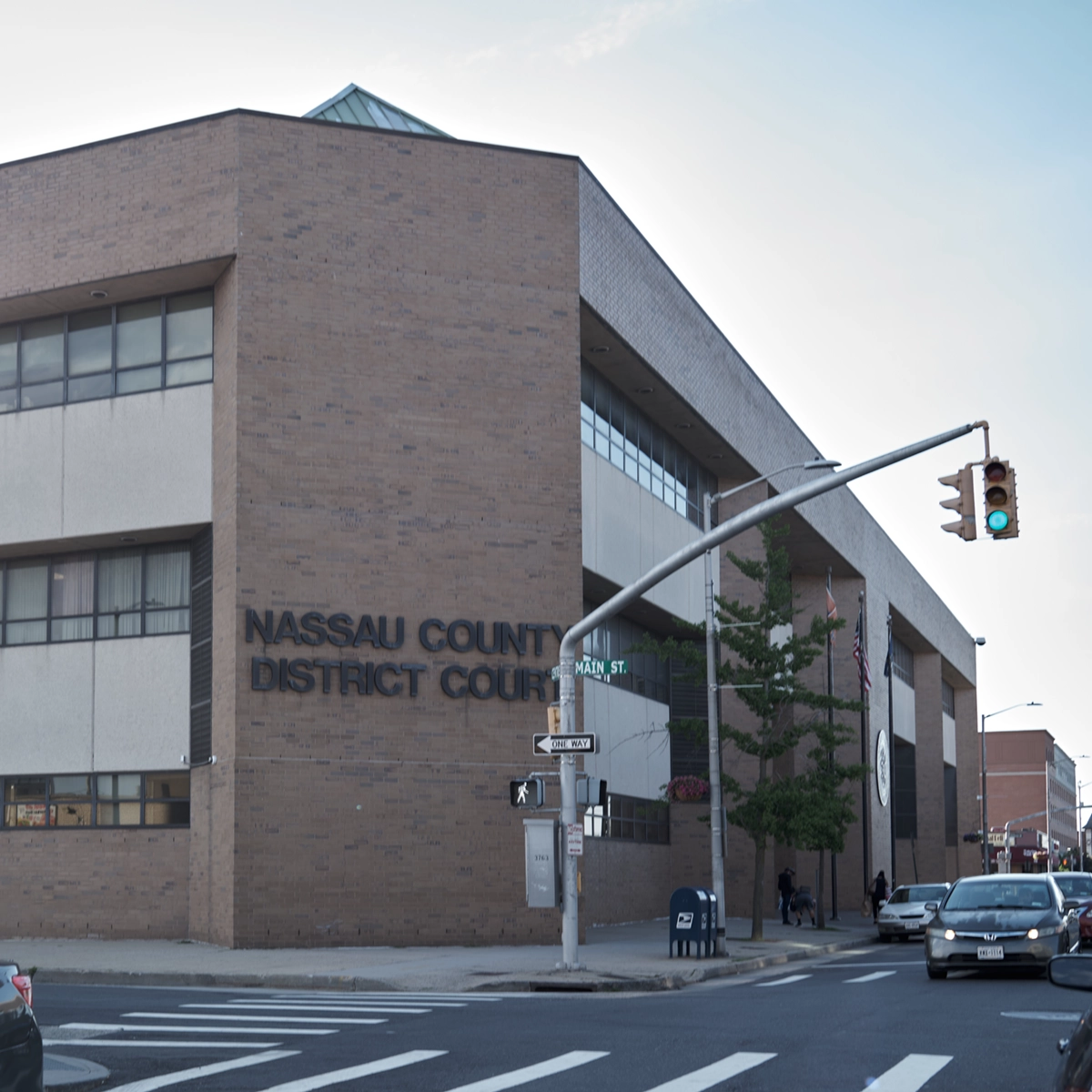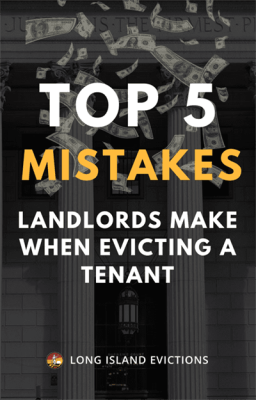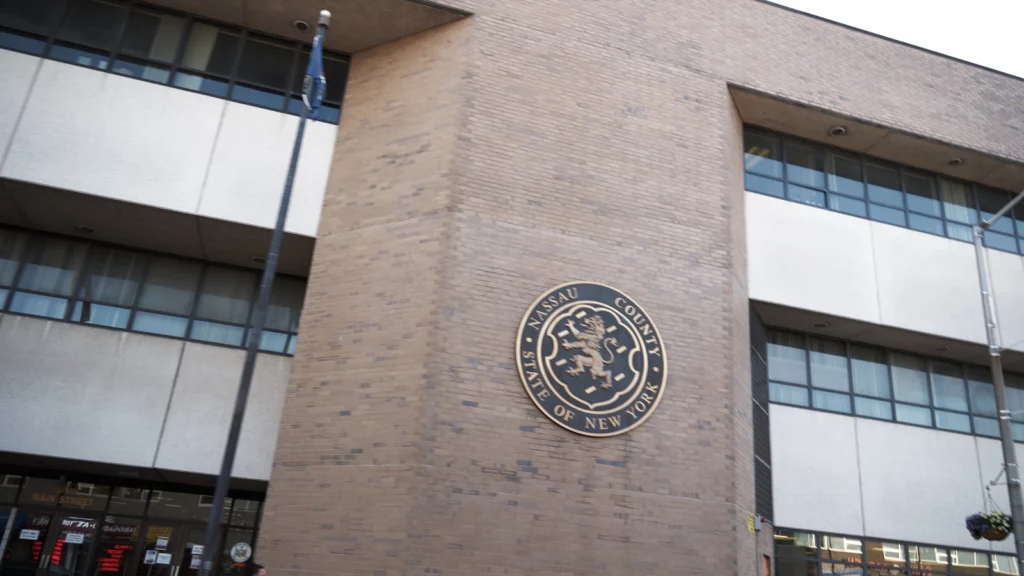Landlord Tenant Lawyer
Serving the Town of Oyster Bay
LONG ISLAND, NEW YORK
The Evictions Process in the Town of Oyster Bay
The two main types of eviction proceedings in the town of Oyster Bay are nonpayment proceedings and holdover proceedings. Once you know the proceeding you’d like to bring to evict your tenant, then you must follow the strict procedures provided by law for evicting a tenant in the town of Oyster Bay.
Resources for Evicting a Tenant in the Town of Oyster Bay:
What Court do You File an Eviction Proceeding in if Your Property is in the Town of Oyster Bay and You Want to Evict Your Tenant?
The District Court of Nassau County is located at 99 Main Street in Hempstead, NY. The court handles all types of eviction proceedings in the town of Hempstead, including evictions for residential, commercial, and mixed-use buildings.
You can view our Nassau County District Court page for more information on district court.

View Our Nassau County District Court Page
If your apartment is located in one of the towns, villages or hamlets in the town of Oyster Bay, then you can file your eviction proceeding in the District Court of Nassau County.
Read FAQs from both Landlords and Tenants in the Town of Oyster Bay
And view our answers to their questions.
TYPES OF
HEMPSTEAD EVICTIONS:
THE COURTHOUSE FOR
HEMPSTEAD EVICTIONS:
RELATED ARTICLES:
Towns, Villages and Hamlets in the Town of Oyster Bay
- Bayville
- Bethpage (certain parts)
- Brookville
- East Norwich
- Farmingdale
- Glen Cove
- Glen Head
- Greenvale (certain parts)
- Hicksville
- Jericho
- Lattingtown
- Locust Valley
- Massapequa Park
- Massapequa
- Mill Neck
- Muttontown
- Old Bethpage
- Old Brookville
- Old Westbury
- Oyster Bay
- Plainedge
- Plainview
- Sea Cliff
- Syosset
- Woodbury
Call or Text
Have Questions? Speak with Us For Free.
We offer free consultations via phone, text or chat. Don't wonder about what your rights are or what your next move is. Call and find out.
📞 (631) 888-6989💬 Text Us NowSummary of the timeline to evict a tenant in the Town of Oyster Bay:
The timeline for an eviction has many variables. We can be more specific if you give us a call. But as a general guide, the Nassau County District Court generally takes 45-60 days to conclude landlord-tenant matters. Then add at least two weeks to that total for unforeseen issues.
Timeframes may vary depending on circumstances, and most evictions will be resolved in less time than that, but to know the maximum time will place the landlord in a better position to make plans for the property.
A Sample Timeline of a
Non-Payment Proceeding in the Town of Oyster Bay:
Step 1
Drafting & serving required notices
The required predicate notices must be drafted and sent to a process server for service. Service could take a week or more.
Step 2
Wait for notice expiration
After service is completed, you must wait for the expiration of the time period on the notice to proceed. It could be a 10-day notice, a 14-day notice, a 30-day notice, a 60-day notice, or a 90-day notice, depending on your situation. This is the time that the tenant has to pack up and leave.
Step 3
Asses status
After the time on the notice expires, if the tenant still has not moved out, you can now proceed with a court proceeding to have them legally removed.
Step 4
Draft & File Petition & Receive Court Date
Upon immediate conclusion of the notice period, a notice of petition and petition will be filed with the district court in Hempstead to begin your eviction proceeding. The district court of Nassau County assigns a court date. As soon as your attorney knows the date, you will be notified and given additional instructions, like what to do on the court date and what to expect.
Step 5
Serve Tenants with the Petition & Notices
The tenant must be served again with the petition and required legal notices, and will be notified to appear in Nassau County District Court on the appearance date.
Step 6
Appear in Court
On the court date, all parties will appear in court. If the tenant fails to appear, the landlord’s attorney may ask the court for a judgment of possession and a warrant of eviction by default. If all parties are present, they will be expected to have a conference in the courthouse to discuss the possibility of settlement.
If the case can be settled, the parties will draft a stipulation of settlement, which will describe what they have agreed to. If the judge approves the settlement, the case will be over.
Step 7
Trial
If the parties cannot come to settlement terms, then the judge will schedule a trial on a new date. On the day of trial, both sides will present their case. If your tenant loses, the court will issue a judgment of possession and a warrant of eviction, which is what the Sheriff will need to physically remove your tenant.
Step 8
Have Your Tenants Physically Removed
You can now take your judgment and warrant to your county sheriff, and they will physically remove your tenant and their belongings from the apartment, and return possession of the premises back to you.
- Get the free guide

Is this you?
want our free guide?
Subscribe to our newsletter & make sure you’re not making the same mistakes.
"How do I Find the Best Eviction Lawyer
in the Town of Oyster Bay?"
It’s not hard to find the best eviction lawyer in the town of Oyster Bay. You just have to ask the right questions, and make a personal choice. Speak with them and ask lots of questions, read the reviews, and ensure they have the experience to get you the desired result.
- ⚖️ Make sure the landlord tenant lawyer primarily focuses on landlord tenant law.
- 🕵️ Ask them how many evictions proceedings they've done, and how much experience they have.
- 💰 Understand not only the fees, but any additional (hidden) charges.
More About The Town of Oyster Bay Evictions Process
What’s the Penalty for Renting an Illegal Apartment?
Renting an illegal apartment can lead to serious consequences, but it may...
Read MoreHow Long Does it Take to Evict a Tenant in Nassau County or Suffolk County, NY?
The Evictions Timeframe Varies Depending on on Several Factors There is no...
Read More10 Day Notice to Quit
There are many types of notices that may be required in New...
Read More



